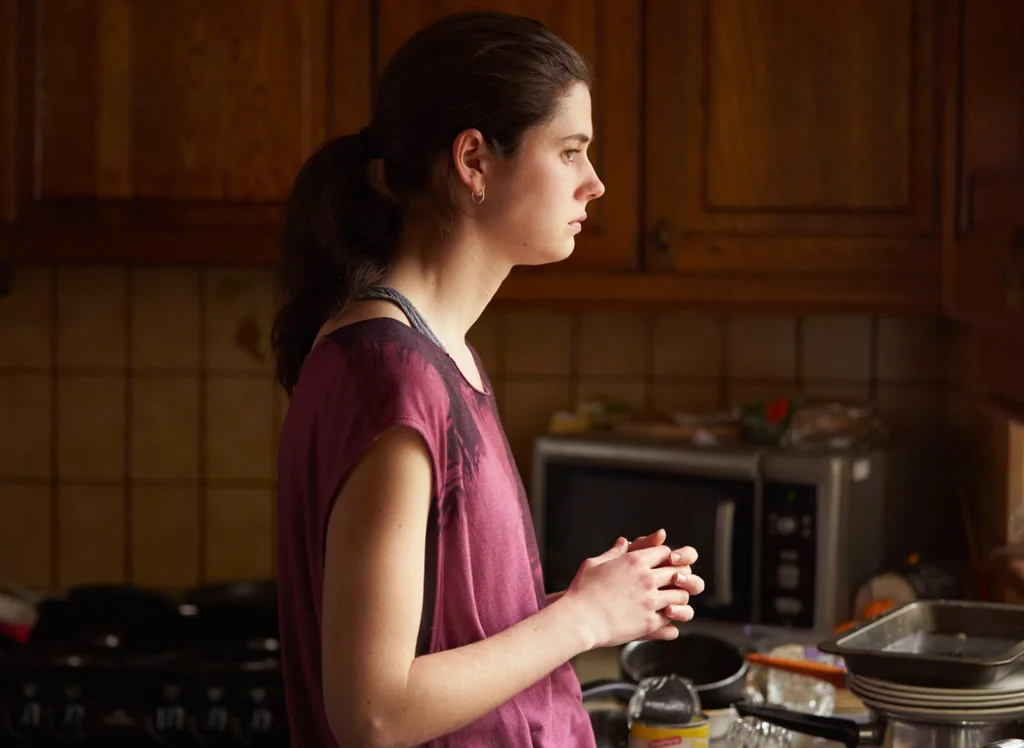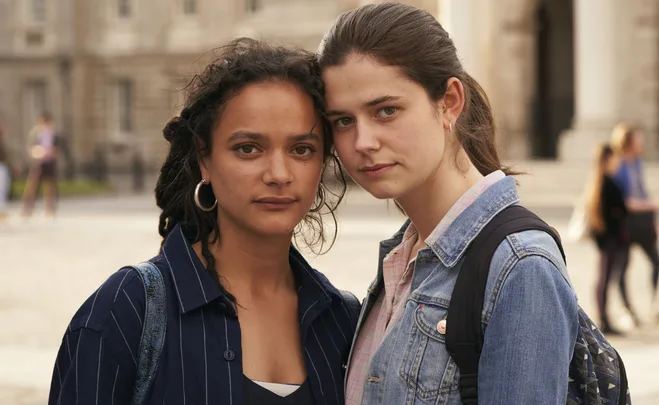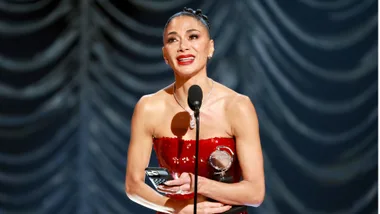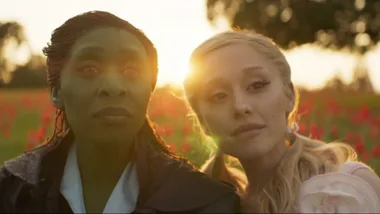Warning: This story contains spoilers for Conversations With Friends.
In Australia, more than one in 10 women will suffer from endometriosis at some point in their life. That number is also reflected globally, yet somehow, we still live in a world where many people—doctors included—dismiss and misdiagnose it.
That conversation needs to change, desperately, yet even in mainstream media and the entertainment industry, this illness (which is not uncommon in the slightest) is rarely talked about.
Attempting to change this problematic ‘silent suffering’ rhetoric is the brand new Amazon series, Conversations With Friends.
Based on the best-selling book by Sally Rooney, it follows a young Irish college student, Frances (played by talented newcomer Alison Oliver), who becomes embroiled in an affair with a married man, Nick. As you the series progresses, the intensity and chemistry between Nick and Frances serves as the biggest plotline. But concurrent to this, Frances’ health journey becomes an entirely different storyline in itself after she is hospitalised for excruciating abdominal pain and heavy vaginal bleeding.
At first, she believes she might be miscarrying a baby, but doctors deduce something else is happening. Eventually (and finally), Frances is diagnosed with endometriosis.
“That was such a massive responsibility and it’s almost a whole other subplot along with everything that happens with the affair,” Oliver tells marie claire Australia in an interview shortly before the series’ release.

She wasn’t lying—Oliver was aware that this particular subject matter would be an incredibly important one not just for the series, but for women and uterus owners who would be watching.
“We did a lot of research on it,” she explains, adding that she and the series’ co-directors Leanne Welham and Lenny Abrahamson spoke to doctors and medical professionals to better understand the illness and how it could be portrayed authentically on-screen.
“I also spoke to a young woman who had endometriosis,” Oliver tells us, “It was important to not just get medical accounts, but also a personal account to make it authentic and real to what it would actually be like.”
After gaining this insight, Oliver knew what she needed to do.
“I think it’s really important to really let it be really painful [on screen] and not to shy away from how debilitating it can be—and to also portray the emotional effects of it. It totally effects your mood, your sense of self and your self worth.”
In Conversations, Frances realises she can’t run from the illness anymore, but she has a difficult time telling those closest to her about it, including her best friend and ex-lover Bobbi. Instead, she internalises it—that in itself changes their dynamic.
“There’s a feeling of weight that stays in Frances until she addresses it and until she gets any kind of diagnosis, and I think just carrying that is a huge thing in itself, even if you’re gong through lots of things in your own life.
“Endometriosis isn’t like, you get a period and you can move on, it’s in you all the time and it’s always bothering you—it’s unique for each person but that’s the case for her.”

It’s a strange position to be in, to play a fictional character yet shine a light on such an important issue for so many people, Oliver says.
“It’s an odd word to use but it was a privilege to get to represent [endometriosis] because hopefully it sparks a bit more of a conversation.”
“That was why it was really important to me to develop [the storyline] with a lot of of conversations with people, and why we tried to make it as real as we could.”
You can watch Conversations with Friends by signing up to Amazon Prime here.










